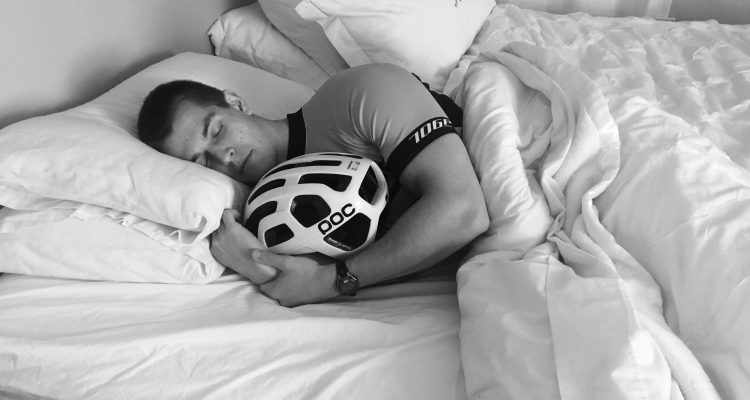Sleep and Performance
Just like athletes need more calories to fuel their bodies for training and competition, they also need more sleep for their bodies to recover and repair. It’s final exam season and the thing I hear most from my high school and college athletes as is, “I’m tired.”, “ “I only got a few hours of sleep last night.”, “I was up late studying.”. I know this is only for a short time, as exams will quickly be over and Christmas break upon us, but I want my athletes to understand how a lack of sleep affects their performance in the gym and on the playing field. Because the demands of school, homework, work, training, family and friends will always be there, so the temptation to forgo sleep will come again.
Here are 4 reasons athletes should get more sleep:
- Sleep can benefit hypertrophy and strength gains: Following training sessions, inflammation is increased acutely to stimulate adaption (i.e. muscle hypertrophy). This short term inflammation is good and stimulates increased hormones such as IGF-1. Sleep (particularly the deep sleep cycles) assist with remodeling and adaptation, and reducing inflammation prior to the next training bout. If you do not sleep, inflammation (such as cortisol) will compound to much higher levels. High levels of chronic inflammation inhibit the deep sleep promoting action of certain other cytokines. In turn, decreasing the body’s ability to adapt.
- Improved endurance performance and reduced perceived exertion: With little sleep you cannot maintain a the same level of intensity as when well rested. A study published in 2009 found that one night of sleep deprivation decreased endurance performance (distance in a 30 minute run) (3). In addition, the same length of sleep deprivation increased perceived exertion for the same 30 minute run.
- Improved reaction time: Many athletes cannot spare even a fraction of a second when it comes to performance. Sleep is one way to stay as quick as possible. Sleep deprivation is known to significantly reduce reaction time. A study published in 2000 by Williamson and colleagues, found that after 17-19 hours of sleep deprivation reaction times were equivalent or worse than that of an individual with BAC of 0.05% (1).
- Improved cognitive and decision making abilities: Sleep deprivation impairs judgment, motivation, focus, memory, and learning. All of which are needed during game situations. Numerous studies report that when sleep is reduced to less than 7 h in healthy adults, cognitive performance is poorer in tests for alertness, reaction time, memory, and decision making (2). It is believed the occurs because of decreased cerebral metabolism in the thalamus, cerebellum, and prefrontal, posterior parietal, and temporal cortices (2).
References
- Williamson, A, and A. Feyer. “Moderate Sleep Deprivation Produces Impairments in Cognitive and Motor Performance Equivalent to Legally Prescribed Levels of Alcohol Intoxication.” Occupational and Environmental Medicine 57.10 (2000): 649–655. PMC.
- Fullagar H, Skorski S, Duffield R, Hammes D, Coutts A, Meyer T. Sleep and Athletic Performance: The Effects of Sleep Loss on Exercise Performance, and Physiological and Cognitive Responses to Exercise. Sports Medicine [serial online]. n.d.;45(2):161-186. Available from: Science Citation Index, Ipswich, MA.
- Oliver S, Costa R, Laing S, Bilzon J, Walsh N. One night of sleep deprivation decreases treadmill endurance performance. European Journal Of Applied Physiology [serial online]. n.d.;107(2):155-161. Available from: Science Citation Index, Ipswich, MA.

